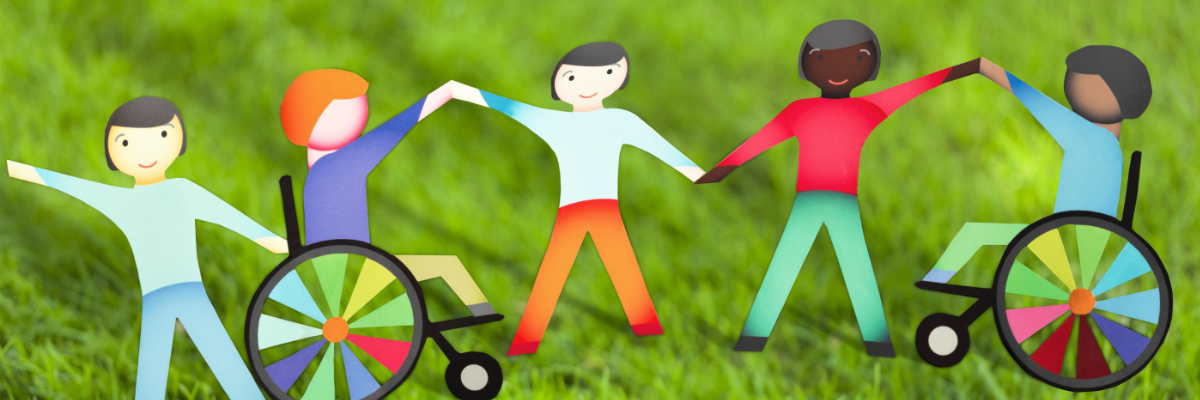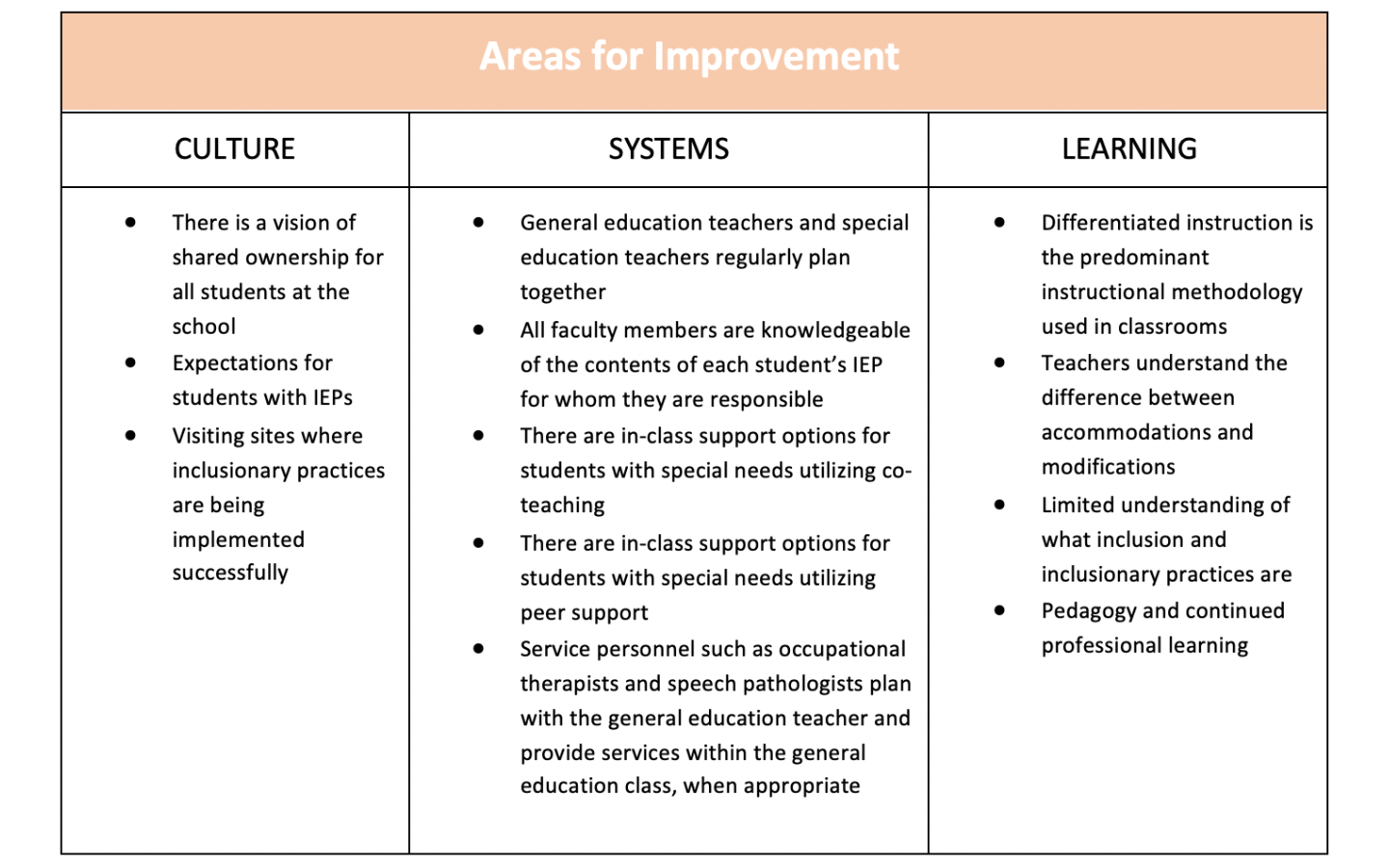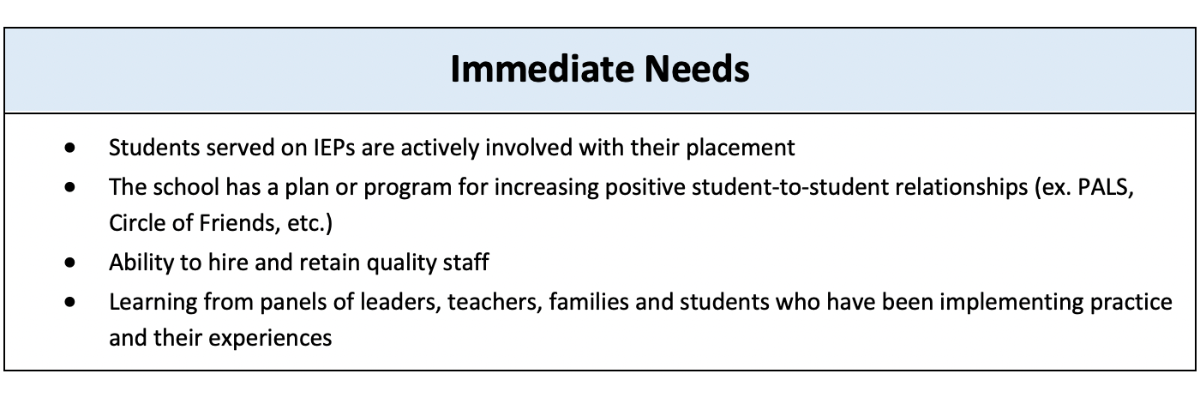AWSP is excited to be one of many organizations involved with the IPPDP cadre as an external partner navigating the implementation of better inclusionary practices for Washington state educators; our focus being, of course, YOU, the building learning leaders. Since November 2019, AWSP has embarked on a “fact-finding” crusade to measure the understanding of what inclusion and inclusionary practices are from our members’ perspective and evaluate what the immediate needs are in order to embed targeted inclusionary practices within all of or professional learning opportunities.

What is all this you are hearing about increasing inclusionary practices professional learning for educators in Washington? A study by the National Council on Disability (2018) ranked Washington state in the lowest quintile for inclusion nationwide (44th out
of 50 states)[1]; data shows only 57% of students with disabilities are included in general education settings for 80-100% of
the school day[2]. The 2019 Washington Legislature responded by passing Engrossed Substitute House Bill 1109, which provided $25,000,000
to OSPI over fiscal years 2020 ($10M) and 2021 ($15M) to create professional learning opportunities supporting better inclusionary practices, emphasizing coaching and mentoring. OSPI selected the Center for Strengthening the Teaching Profession (CSTP)
to plan and coordinate the Inclusionary Practices Professional Development Project (IPPDP).
Why are we telling you this?
AWSP is excited to be one of many organizations involved with the IPPDP cadre as an external partner navigating the implementation of better inclusionary practices for Washington state educators; our focus being, of course, YOU, the building learning
leaders. Since November 2019, AWSP has embarked on a “fact-finding” crusade to measure the understanding of what inclusion and inclusionary practices are from our members’ perspective and evaluate what the immediate needs are in
order to embed targeted inclusionary practices within all of or professional learning opportunities.
AWSP developed and deployed a survey to our members to gauge a better understanding of inclusionary best practices, perceived barriers and professional learning needs of school leaders. Between Nov. 22, 2019, and Feb. 24, 2020, AWSP provided
this survey to attendees at AWSP professional learning opportunities, board and committee meetings, as well as engagement through targeted emails and e-newsletters to all 3500+ active AWSP members. Through these efforts, AWSP received 88 responses.
This small, blind sample of active school administrators will help influence and guide AWSP’s future professional learning opportunities targeted to, and framed with, the lenses of equity and inclusion.
Categorizing these findings within a Culture, Systems, and Learning philosophy, as outlined within the School Leader Paradigm: Becoming While Doing, AWSP, utilizing a cycle of inquiry, will assist learning leaders in enriching their professional
pedagogy to build and lead learning organizations. Our goal is to help you, as a learning leader, disrupt and dismantle systemic isolation of students who have IEP plans and identify better practices for incorporating inclusive practices as professional
and educational expectations and norms.
When analyzed through the culture/systems/learning lenses, AWSP identified many Areas of Improvement [Table 1] based on survey responses. Further analysis of these improvement areas indicated overlap: there were several categories
that fell into two or more buckets on the culture, systems and learning continuum. AWSP identifies these areas as Immediate Needs [Table 2] and will work to embed relevant content addressing these needs within our professional
learning opportunities first.
Why such a push on inclusionary practices now? Because it is way overdue. Based on the body of research, the current reality of inclusionary practice programs in Washington state has much room for improvement. As learning leaders, we know you are all
focused on improving the culture, systems and learning in your buildings and are committed to learning about and supporting inclusionary best practices. AWSP will continue to provide ongoing professional learning embedded with inclusionary best practices
to assist you in increasing the academic, social and emotional outcomes for all students. AWSP is dedicated to supporting you through engaging professional learning as you navigate your way to improved inclusionary practices for all your students
and your entire school community.
If you did not take the opportunity to participate in our research, do not worry. AWSP will be sending out further surveys as this project progresses. We want to make sure all voices have a chance to participate and share understanding, because, no two
schools are the same.
We exist to strengthen your learning and your leadership.
For more information on the IPPDP Cadre and the work being done statewide, please visit: https://www.k12.wa.us/policy-funding/special-education-funding-and-finance/inclusionary-practices-professional-development-project
Table 1: Identified Areas for Improvement

Table 2: Identified Immediate Needs

[1] i National Council on Disability. (2018). The Segregation of Students with Disabilities. https://ncd.gov/sites/default/files/NCD_Segregation-SWD_508.pdf
[2] Office of Superintendent of Public Instruction. (2019). Special Education Federal Child Count.